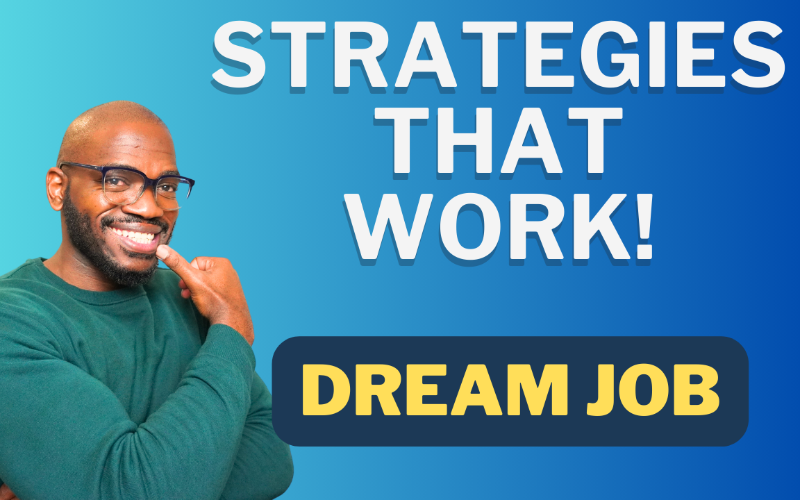Job interviews can be a daunting experience, especially in a competitive job market like Johannesburg. Whether you're a seasoned professional or a fresh graduate, understanding how to navigate the interview process is crucial for securing your desired role. This comprehensive guide is tailored specifically for job seekers in Johannesburg, offering practical tips and insights to help you stand out and impress local employers.
Johannesburg, often referred to as the economic powerhouse of South Africa, presents a vibrant job market with opportunities across various industries. From finance and technology to mining and retail, the city offers a diverse range of career paths. However, with this diversity comes competition, making it essential for job seekers to be well-prepared and confident during interviews.
In this guide, we will delve into the unique aspects of the Johannesburg job market, explore essential preparation strategies, and provide actionable tips to enhance your interview performance. By following these guidelines, you will be better equipped to make a lasting impression and secure your dream job in Johannesburg.
Understanding the Johannesburg Job Market
The Unique Landscape of the Johannesburg Job Market
Johannesburg, known as Jo'burg or Joburg, is the largest city in South Africa and a hub for commerce and industry. The city's job market is characterized by its dynamic nature and the presence of major multinational corporations, making it a hotspot for job seekers.
Major Industries in Johannesburg
-
Finance and Banking: Johannesburg is home to the Johannesburg Stock Exchange (JSE) and numerous financial institutions, offering roles in banking, investment, and financial services.
-
Technology: The tech industry in Johannesburg is growing rapidly, with opportunities in software development, IT services, and tech startups.
-
Mining: As a historically significant industry, mining continues to play a crucial role in the local economy, providing jobs in engineering, geology, and management.
-
Retail and Commerce: Johannesburg's retail sector is thriving, with positions in sales, marketing, and management.
Employment Trends and In-Demand Skills
-
Digital Transformation: There is a high demand for digital skills as companies embrace technology and digital transformation. Skills in data analysis, digital marketing, and cybersecurity are particularly sought after.
-
Project Management: With many large-scale projects in various industries, project management skills are highly valued.
-
Customer Service: Excellent customer service skills are essential in the retail and service sectors, contributing to customer satisfaction and business success.
Local Work Culture and Expectations
Understanding the local work culture is crucial for job seekers aiming to succeed in Johannesburg. Employers in Johannesburg value professionalism, punctuality, and a strong work ethic. Additionally, networking and building professional relationships are vital for career growth and job opportunities.
By familiarizing yourself with the Johannesburg job market and its unique characteristics, you can tailor your job search and interview preparation to align with local expectations and industry demands.
Preparation Before the Interview
Researching the Company
Thorough research is a cornerstone of successful interview preparation. Understanding the company you are interviewing with demonstrates your interest and commitment to the role.
Importance of Company Research
Researching the company helps you tailor your responses to align with its mission, values, and goals. It also enables you to ask insightful questions, showcasing your genuine interest in the organization.
Key Areas to Focus On
-
Company History and Mission: Understand the company's background, mission statement, and core values.
-
Products and Services: Familiarize yourself with the company's offerings and any recent product launches or services.
-
Recent News and Achievements: Stay updated on the company's latest news, such as awards, expansions, or notable projects.
Resources for Company Research
-
Company Website: The company's official website is a primary source of information.
-
LinkedIn: Explore the company's LinkedIn page for updates and employee insights.
-
News Articles: Read news articles and press releases to stay informed about recent developments.
Resources for Company Research
| Resource | Details |
|---|---|
| Company Website | Official information about the company's history, mission, and products/services. |
| Company updates, employee profiles, and industry insights. | |
| News Articles | Recent news, press releases, and articles about the company's achievements and projects. |
By investing time in researching the company, you will be better prepared to discuss how your skills and experiences align with the organization's needs and values.
Understanding the Job Role
A clear understanding of the job role you are applying for is essential for tailoring your interview responses and demonstrating your suitability for the position.
Analyzing the Job Description
The job description is your roadmap to understanding what the employer is looking for in a candidate. Carefully read through the job posting and identify key responsibilities and required skills. Take note of any specific qualifications or experiences that are mentioned.
-
Key Responsibilities: Highlight the primary duties and responsibilities of the role. This helps you understand what will be expected of you if you are hired.
-
Required Skills: Pay attention to both hard and soft skills listed in the job description. Employers often prioritize certain skills, and demonstrating proficiency in these areas can set you apart from other candidates.
Aligning Your Skills and Experience
Once you have a clear understanding of the job requirements, map your skills and experiences to these criteria. Think about how your previous roles have prepared you for this position and be ready to discuss specific examples.
-
Matching Qualifications: Identify the qualifications you possess that match the job requirements. Prepare to highlight these during the interview.
-
Relevant Experiences: Reflect on past experiences where you successfully performed tasks similar to those listed in the job description. Use these examples to illustrate your capabilities.
Preparing Examples
One of the most effective ways to demonstrate your qualifications is through specific examples. Use the STAR method (Situation, Task, Action, Result) to structure your responses:
-
Situation: Describe the context within which you performed a task or faced a challenge.
-
Task: Explain the specific task or responsibility you were assigned.
-
Action: Detail the actions you took to complete the task or resolve the issue.
-
Result: Share the outcomes of your actions, emphasizing positive results and achievements.
Using the STAR Method
Question: "Can you describe a time when you managed a challenging project?"
Answer:
-
Situation: In my previous role as a marketing manager, our team was tasked with launching a new product line within a tight deadline.
-
Task: My responsibility was to coordinate the marketing campaign and ensure that all promotional materials were ready for the launch.
-
Action: I developed a detailed project plan, delegated tasks to team members, and held regular check-ins to monitor progress. Additionally, I collaborated with the design team to expedite the creation of marketing materials.
-
Result: The product launch was a success, and we achieved a 20% increase in sales in the first quarter. The campaign received positive feedback from both customers and senior management.
By preparing examples like these, you can provide compelling evidence of your capabilities and make a strong impression on interviewers.
Building Confidence for the Interview
Practicing Common Interview Questions
Confidence is key to a successful interview. Practicing common interview questions can help you articulate your thoughts clearly and reduce anxiety.
Typical Questions Asked by Johannesburg Employers
Employers in Johannesburg often ask a mix of standard and behavioral questions to assess your fit for the role. Here are some common questions:
-
Tell me about yourself.
-
Why do you want to work here?
-
What are your strengths and weaknesses?
-
Can you describe a time when you faced a challenge at work?
-
Where do you see yourself in five years?
Formulating Strong Responses
Use the STAR method to structure your answers to behavioral questions. For more general questions, focus on being concise and relevant. Here are some tips:
-
Be Specific: Provide concrete examples and details.
-
Be Positive: Frame your responses in a positive light, even when discussing challenges.
-
Be Honest: Authenticity is important. Be truthful about your experiences and skills.
Example: Answering "Why do you want to work here?"
Answer: "I am excited about the opportunity to work at [Company Name] because of its commitment to innovation and community impact. During my research, I was impressed by your recent initiatives in sustainable development and the positive feedback from employees about the collaborative work environment. My background in project management and my passion for sustainability align well with your company’s goals, and I am eager to contribute to your ongoing success."
Mock Interviews
Mock interviews are an excellent way to practice and build confidence. Here’s how to make the most of them:
Importance of Mock Interviews
Mock interviews simulate the real interview environment, allowing you to practice your responses and receive feedback. They help identify areas for improvement and build your confidence.
Setting Up a Mock Interview
-
Find a Partner: Ask a friend, family member, or mentor to conduct the mock interview.
-
Prepare Questions: Provide your partner with a list of common interview questions or specific questions relevant to the job.
-
Simulate Real Conditions: Dress as you would for the actual interview and choose a quiet, professional setting.
-
Seek Feedback: After the mock interview, ask for constructive feedback on your responses, body language, and overall performance.
Quote: "Practice makes perfect. The more you practice, the more confident and prepared you will feel during the actual interview." — Anonymous
Positive Mindset and Body Language
Your mindset and body language play a crucial role in how you are perceived during an interview.
Cultivating a Positive Mindset
-
Visualize Success: Imagine yourself performing well in the interview. Visualization can boost your confidence and reduce anxiety.
-
Affirmations: Use positive affirmations to build self-confidence. Repeat phrases like "I am prepared" and "I am capable" before the interview.
-
Deep Breathing: Practice deep breathing exercises to calm your nerves and maintain composure.
Non-Verbal Communication
Non-verbal cues can significantly impact the interviewer's impression of you. Here are some tips to ensure positive body language:
-
Eye Contact: Maintain steady eye contact to show confidence and engagement.
-
Posture: Sit up straight with your shoulders back. Avoid slouching, as it can indicate a lack of confidence.
-
Gestures: Use natural hand gestures to emphasize points, but avoid excessive movement.
-
Facial Expressions: Smile and nod to show interest and understanding.
By focusing on both your verbal and non-verbal communication, you can project confidence and make a positive impression on your interviewers.
Dressing for Success
Understanding Local Dress Codes
Your attire plays a crucial role in making a positive first impression during an interview. Understanding the local dress codes in Johannesburg can help you dress appropriately and feel confident.
Professional vs. Business Casual
Different companies and industries have varying expectations regarding dress codes. Here are some general guidelines:
-
Professional Attire: Typically required for roles in finance, law, and corporate settings. This includes suits, ties, and formal dresses.
-
Business Casual: Common in tech, creative, and some corporate environments. This includes dress shirts, blouses, slacks, and skirts.
Table: Professional vs. Business Casual Attire
| Attire Type | Examples for Men | Examples for Women |
|---|---|---|
| Professional | Suit and tie, dress shoes | Suit or formal dress, closed-toe shoes |
| Business Casual | Dress shirt, chinos, loafers | Blouse, slacks or knee-length skirt, flats or heels |
Dressing for the Industry
Tailoring your outfit to the company culture and industry can help you fit in and show that you understand the environment. For example:
-
Tech Startups: Business casual or smart casual attire. Jeans may be acceptable, but pair them with a nice shirt or blazer.
-
Creative Industries: Feel free to express your personal style while maintaining a professional look. Accessories and colors can be more relaxed.
-
Corporate Settings: Stick to conservative professional attire. Dark colors and minimal accessories are often preferred.
Quote: "Dress how you want to be addressed." — Bianca Frazier
By dressing appropriately for your interview, you demonstrate your professionalism and respect for the company’s culture, helping you make a strong first impression.
On the Day of the Interview
Arriving Early
Punctuality is a sign of reliability and respect. Arriving early for your interview can help you start on the right foot.
Importance of Punctuality
Being on time shows that you value the interviewer's time and are serious about the opportunity. It also gives you a buffer to handle any unexpected delays.
Planning Your Route and Arrival Time
-
Route Planning: Determine the best route to the interview location and consider alternatives in case of traffic or public transportation issues.
-
Arrival Time: Aim to arrive at least 15-20 minutes early. This allows you to settle in, use the restroom, and mentally prepare.
-
Avoiding Delays: Check the weather forecast and traffic reports on the day of the interview to avoid any last-minute surprises.
Example: Planning Your Route
| Step | Action |
|---|---|
| Determine Location | Use Google Maps or a GPS device to find the exact location of the interview. |
| Identify Route | Choose the quickest and most reliable route. Consider alternatives in case of road closures. |
| Check Schedule | Review public transportation schedules if applicable. Plan for peak hours and potential delays. |
| Allow Extra Time | Plan to leave home early to accommodate any unexpected delays. |
Bringing Necessary Documents
Having all necessary documents prepared and organized shows your attention to detail and preparedness.
What to Bring to the Interview
-
Copies of Your Resume: Bring several copies in case you meet with multiple interviewers.
-
List of References: Have a printed list of professional references, including their contact information.
-
Portfolio: If applicable, bring a portfolio showcasing your work, such as projects, reports, or creative work.
-
Notebook and Pen: Use these to take notes during the interview.
Organizing Your Documents
-
Folder or Briefcase: Use a professional-looking folder or briefcase to keep your documents neat and accessible.
-
Checklists: Create a checklist of items to bring to ensure you don’t forget anything.
Quote: "Preparation is the key to success." — Alexander Graham Bell
By arriving early and bringing the necessary documents, you demonstrate your professionalism and readiness, setting a positive tone for the interview.
Final Thoughts on Interviewing in Johannesburg
Securing a job in Johannesburg’s competitive market requires strategic preparation, effective communication, and a confident mindset. By understanding the local job market, thoroughly researching the company and job role, and practicing your interview skills, you can significantly enhance your chances of impressing local employers.
Remember to dress appropriately, arrive early, and bring all necessary documents to make a strong first impression. Handling tough questions with composure and following up with a thank-you note are also key steps in the process.
Ultimately, the goal is to present your best self and demonstrate how your skills, experiences, and values align with the company’s needs. Stay persistent, positive, and proactive in your job search, and you will be well on your way to landing your dream job in Johannesburg.
Thank you for reading this comprehensive guide on interview tips for job seekers in Johannesburg. We hope these insights and tips help you succeed in your next interview. Good luck!








